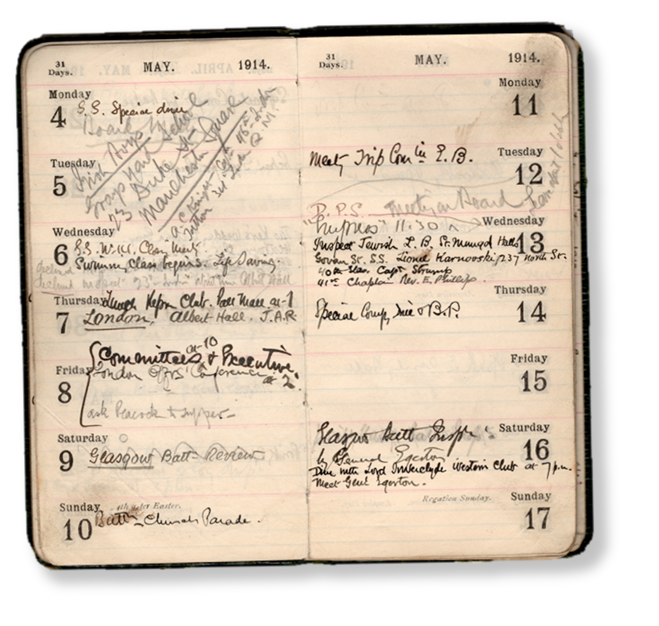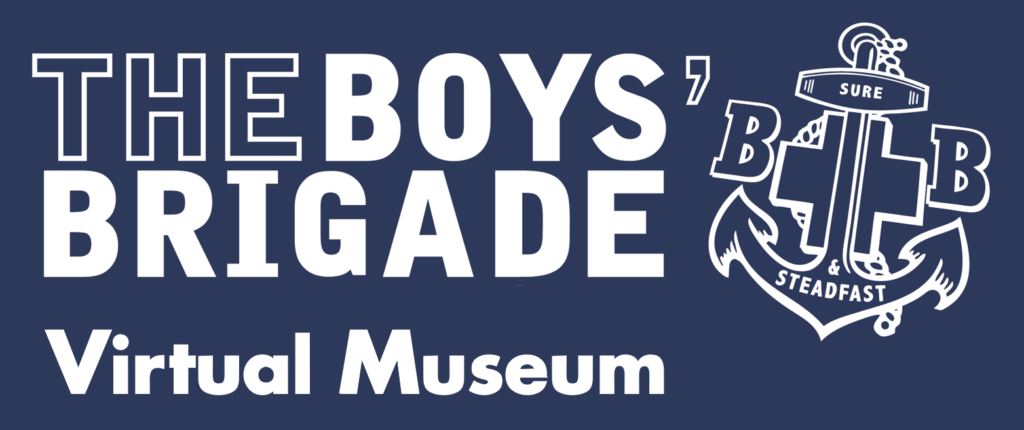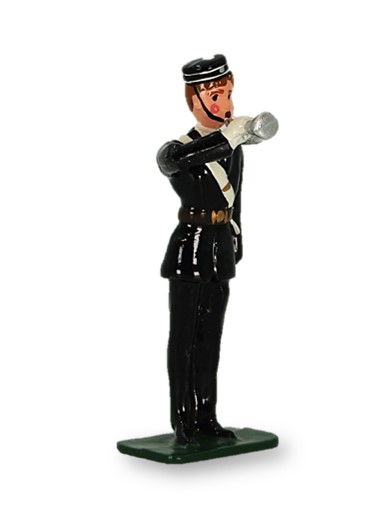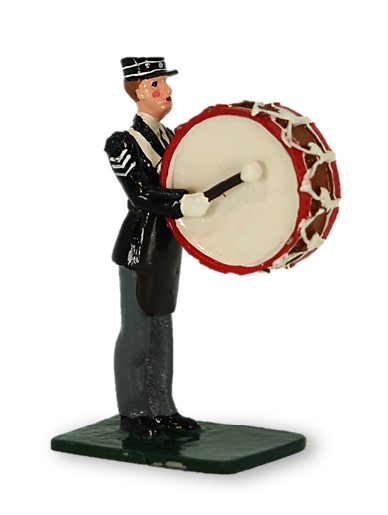Sir W A Smith death
The Boys’ Brigade was dealt a heavy blow in 1914 with the death of its Founder and Secretary in his sixtieth year. Stunned by the loss of its Founder, who had so deeply involved himself in the growth and development of the movement throughout the thirty-one years of its existence, the Brigade prepared an appropriate memorial tribute with an impressive service in St. Paul’s Cathedral on 15 May, attended by the leaders of all the uniformed youth organizations and other religious and secular representatives. A telegram of sympathy from the King to the Brigade President, Lord Guthrie, on the day of Smith’s death was followed by many further tributes.
Following the service at St. Paul’s, William Smith’s body was taken with great ceremony and emotion from London to Glasgow for the funeral service in the College and Kelvingrove United Free Church. As the overnight London-Glasgow train sped through Rugby, the stillness of the night was broken by the sad notes of the ‘Last Post’ sounded by a detachment of the 2nd Rugby Company, ‘who had waited long hours through the night to sound farewell to our beloved Chief’. Following the service, taken by Dr Reith, Chaplain of the 1st Glasgow Company since its formation, a massive funeral procession accompanied the cortege through the West End of Glasgow to the Western Necropolis, along a route familiar to Smith, on that day lined with an estimated 164,000 people.
Arthur Jackson recalled, as a young officer, attending on behalf of Leeds Battalion: The whole of Glasgow seemed to turn out. The people were eight and nine deep on both sides of the footpath… every B.B. boy in Glasgow was provided with a carnation and they dropped this carnation into the grave and it was absolutely chock-a-block with flowers. But we filed past and then the buglers sounded the last post and we returned home, a very disconsolate, miserable crowd of officers, because we almost thought our world had come to an end.
Tributes to Sir William Smith, at the many memorial services held immediately after the funeral, were as numerous as might be expected. At a service for 4,000 members of the organization in the St. Andrew’s Halls, Glasgow, Lord Guthrie, Brigade President, quietly led the praise: Sir William Smith was a man of great shrewdness and excellent business capacity: he had a grasp of principles along with infinite capacity for details; but he could not cut and parry with the broad sword of Mr Asquith or thrust with the rapier of Mr Balfour. He was a calm, lucid, convincing speaker and he wrote well; but he had not the silver tongued eloquence or the splendid written style of Lord Rosebery. but I venture to say that he originated and successfully developed directly and indirectly a work infinitely more important than the generality of the business of Parliament … it was left to Sir William Smith to spell the word Boy.
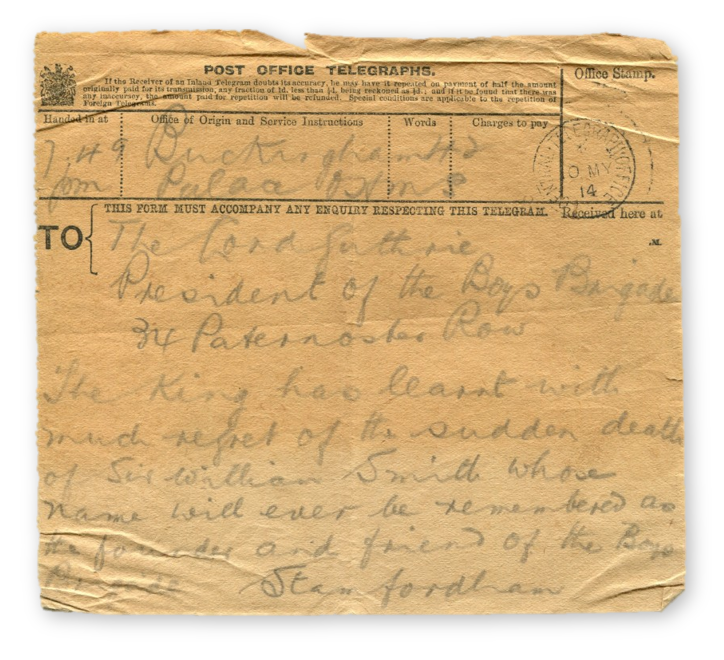
Announcement issued to all Boys’ Brigade Companies – Monday 11th May 1914
Lord Guthrie, President of The Boys’ Brigade, and The Brigade Executive deeply regret to announce that Sir William A Smith died suddenly in London on Sunday morning.
He arrived in London from Glasgow on Wednesday evening, and was present at the Annual Demonstration at the Royal Albert Hall on Thursday last, which was presided over by H.S.H. Prince Alexander of Teck.
On Friday morning he appeared to be in his usual health, and while attending a meeting of the Brigade Executive in the London Office that afternoon, was suddenly taken ill, and gradually became unconscious. He was immediately attended by Dr. A.E. Morison, a Member of the Executive, who was present at the meeting, and was subsequently conveyed to St. Bartholemew’s Hospital, which is within a few hundred yards of the Office. He received every attention from the Hospital Staff, and was attended by Dr. Garrod and Dr. James Calvert. Sit William, however, never regained consciousness, and passed away at 6.30 am on Sunday morning, the cause of heath being haemorrhage on the brain. Both sons of Sir William were present in London during his illness.
A Memorial Service will be held in St Paul’s Cathedral, London, on Friday 15th inst., at 8pm. All particulars of this service will be posted to Companies in the London District, and Officers of Companies outside this area may obtain tickets of admission on application to the London Secretary, 34 Paternoster Row.
The Funeral, at which the Glasgow Battalion will parade, will take place in Glasgow on Saturday, 16th inst., at 3.30pm, from College and Kelvingrove United Free Church to the Western Necropolis. Officers and Representative Detachments outside the Glasgow area desiring to attend the Funeral will kindly notify Head-Quarters as soon as possible, when instructions will be sent them.
A Memorial Service, at which Lord Guthrie will deliver an Appreciation, will be held in St. Andrew’s Hall, Glasgow, on Sunday , 17th inst., at 2.30pm. Visiting Officers are invited to be present. Admission will be by ticket, to be obtained from the Brigade Headquarters, 30 George Square, Glasgow.
At both Memorial Services and at the Funeral, Officers will wear Boys’ Brigade Uniform, with a black crape band, 3 1/4″ wide, round the left arm, above the elbow. They will wear the usual tan gloves and carry canes. This band will be worn by Officers when in uniform until the end of August. Staff-Sergeants, NCO’s and Boys attending the Funeral will wear black ties, but no bands on the arm. Rifles will not be carried.
Floral tributes, which should be strictly limited, and in no case sent by individuals or Companies, may be addressed to College and Kelvingrove Church, Kelvingrove Street, Glasgow.
On Behalf of the Executive, J.A. Roxburgh. Brigade Vice-President.
